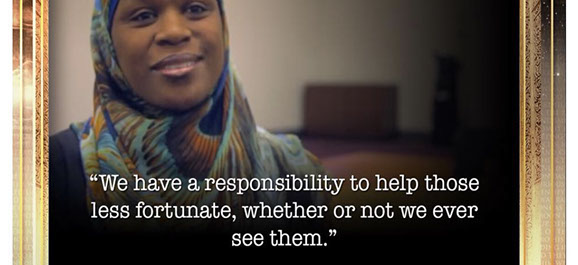CHICAGO – For Muslims gathering at annual MAS-ICNA convention, being victims of bigotry, hate crimes, and overall aggression summed up most of their new feelings under the administration of Donald Trump.
The degree of division in the country has allowed minority groups to organize their efforts and take a unified stand against hate, debating methods to counter hate.
“To a certain degree, there has to be an element of being woke that goes beyond necessary slogans and understanding the ideas of our community from the outside that require a degree of development,” Iesha Prime, a scholar, and activist said during a session titled, “How to resist Bigotry.”
“There is a lot of factors that consistently plague our communities that are to a certain degree, external factors,” she added.
However, resisting, as Prime insists, is not an easy task.
Racial discrimination and bigotry in America are in the foundations of the country, consistently rearing its ugly head in many turning points in the country’s history.
“You’re talking about 135 years of slavery, and the reconstruction, and Jim crow,” she told the audience.

The Muslim activist added that learning how prior generations handled bigotry is a key to understanding how power dynamics exist and thrive, outlining the different measures many people must take to be effective against oppressive powers.
“There are certain tools that the Resistance must be familiar with, as they push the necessary buttons and truly put pressure on the bases of power influencing bigotry in this country,” Prime stated.
“Racism and bigotry pre-dates this generation, and there needs to be a raw power, and endurance required to resist bigotry.”
Prime also acknowledges the great difficulty that many Muslim women go through on a daily basis in Trump’s America:
“In terms of the Muslim women that are going in, day in and day out, to represent, it comes with a heavy price.
There are multiple examples of Muslim women donning the hijab that have had heated incidents against them in terms of hate crimes.”
Difficult Year
In the second part of the session, popular Muslim activist Linda Sarsour reiterated the great difficulty the year has had on her personally and to many women like her.
“No one in this room wants to be Linda Sarsour right now, the amount of hate I have endured this year alone is enough for a lifetime,” the head of the Arab American Association of New York told the audience.
She enumerated the different positive initiatives that were done in the past year, such as the Women’s march and other important movements done throughout the course of 2017.
Sarsour helped end the NYPD’s practice of spying on Muslim-American citizens and was instrumental in the effort for New York to close schools on two Muslim high holy holidays, a first for any big city in the US.
Sarsour is one of the five organizers behind the Women’s March on Washington, a global movement of rallies and marches in protest of President Donald Trump’s agenda.
Giving a speech after Trump’s inauguration, Sarsour declared in front of millions, that you are “unapologetically Muslim American, unapologetically Palestinian American, unapologetically from Brooklyn” and defiantly “not afraid.”
After the march, right-wing websites boasted headlines like “Organizer For DC Women’s March, Linda Sarsour Is Pro-Sharia Law With Ties to Hamas,” “The Anti-Semite Who Organized the ‘Women’s March on Washington’” and “The Muslim Veil, Not Pink Pussy Cap Was The Real Symbol Behind Big Women’s March.”
Emphasizing the great difficulty to resist hate, Sarsour said the price is not heavy enough not to sacrifice for the future generations.
“Organizing the march wasn’t easy, going on TV every day wasn’t easy, especially being a mother. But it was all worth it, and it will continuously be worth it. It’s a great honor to serve the community,” she said.
The general reaction of the audience consistently was positive and many questions were asked at the Q&A session that opened a channel for dialogue.
Overall, the resistance against bigotry was shown to be a long and hard battle that has little sweet victories.
However, the crowd walked away with a clear understanding of what was needed to educate oneself and to be able to also arm the future generations.